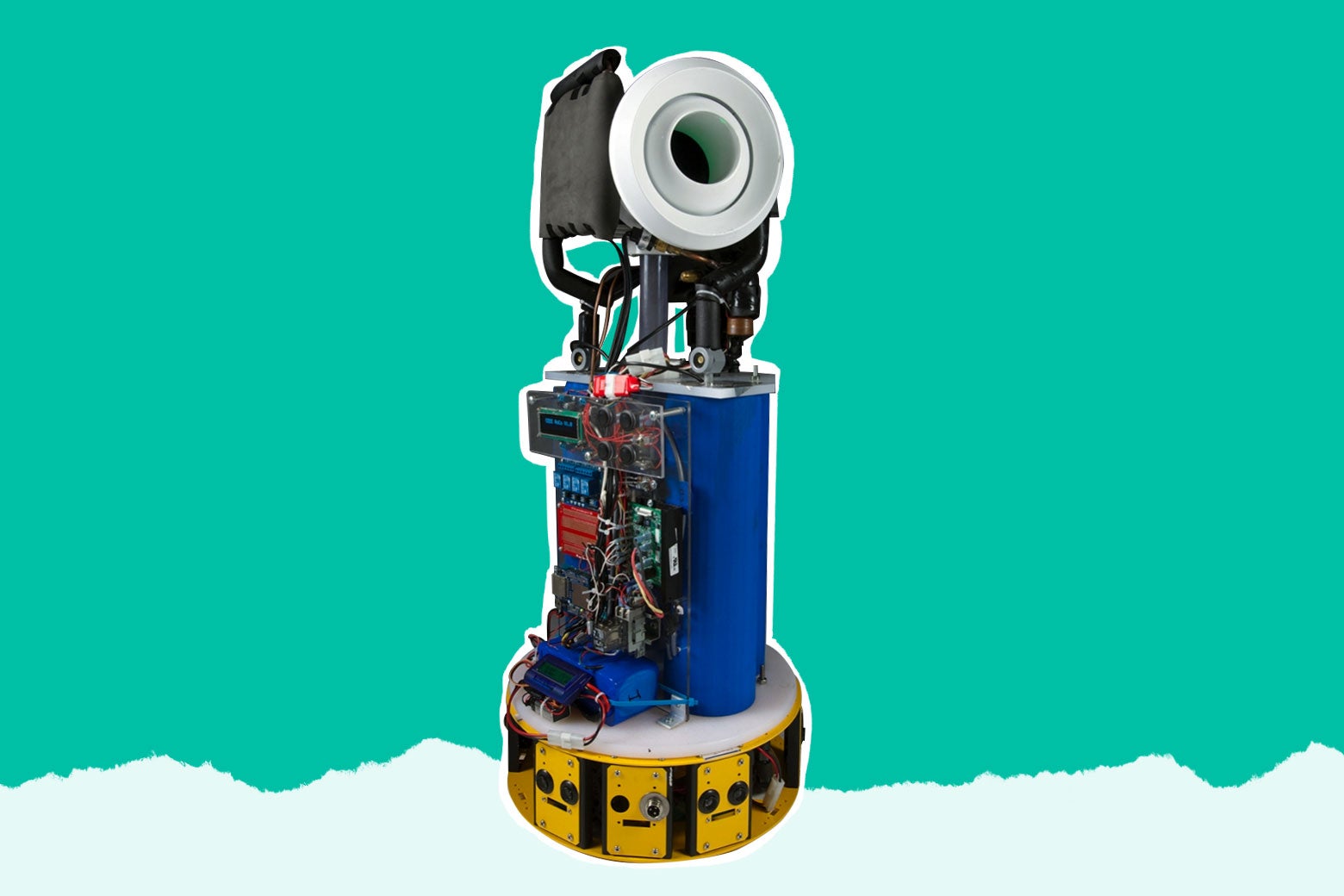Northern California weather is pretty temperate. You can get by with a lack of central air conditioning, which is good news since nary a single place I’ve lived in the Bay Area has had it. But in the summer, there are sweltering days where the heat feels inescapable. While I don’t wish I had central air, I do wish I had something better than a box fan for those hottest weeks, something that would follow me around while perfectly streaming air at my dew-drenched face. What I want is a robotic fan.
In my mind, I picture a Roomba outfitted with a tower fan and a camera, something that could follow me from the bedroom to the kitchen like a dutiful, air-cooling butler. Unfortunately, while it seems like a perfectly hackable project, this does not seem to exist. Artificial intelligence, machine learning, and image recognition have infiltrated all manner of our lives, but they have not yet permeated the HVAC industry—with the exception of one project that began at the University of Maryland a few years back. It’s called RoCo, and it’s a $400 personal robot air conditioner built around the idea that by cooling an individual—rather than an entire room or entire home—you can save significantly on energy expenditures with a similarly satisfactory end result. The RoCo tracks an individual’s movements and directs cooled air their direction with a single nozzle. It’s technically not a fan at all: It’s a heat pump.
RoCo, which stands for “roving comforter,” started as an Advanced Research Projects Agency-Energy, or ARPA-E, project, but has since been spun off into a commercial endeavor through the startup Mobile Comfort. ARPA-E supports energy-related technologies that have good potential for commercialization before they’re ready for private sector investment. RoCo made its debut as a prototype at CES’s Eureka Park in 2017, but it is now getting closer to the final stages of design and production: The device is currently available for preorder and expected to begin shipping in the spring of 2019.
“The last iteration that came out of the University of Maryland looks a bit like R2D2,” said Todd Stave, the CEO of Mobile Comfort. “The next generation will have more elegant looks and lines and interfaces. It’s round—or elliptical—about three feet tall, 12 to 14 inches in diameter, and will have one output nozzle that tracks users movements so its airstream is continuously focused on the user.”
Initially, RoCo was designed to follow people around, but the company found a couple problems when it interviewed potential customers. The first was that people found that idea “a little creepy.” The second was that a fully mobile roving air-conditioner bot would be unsuitable for many work environments, particularly warehouses, where it could get in the way of operations. Still, RoCo has wheels so that it can be easily moved to whatever space you’re in, and it’s powered by rechargeable batteries, so it doesn’t introduce a tripping hazard with troublesome cords crisscrossing the floor.
The device should be able to help lower the temperature in a user’s immediate area by as much as 5 or 10 degrees compared to the ambient temperature in the room. With its form-factor and cooling capabilities, RoCo is an ideal personal cooling option for the millions of people living in small apartments and condos in places like Tokyo, Boston, or cities across Europe (or for people like me, in San Francisco). It likely doesn’t make sense for people living in large houses or for families unless it stayed in a particular room, like a home office.
While it’s not as “robotic” as I’d have it be, RoCo is a creative way to keep cool without wasting energy keeping the entire place at that temperature. It should beat a window-mounted air conditioner in terms of efficacy and convenience and be less of a hassle than a box fan, as well. At $400, it will a pricey way to beat the heat, but if it keeps me from leaving a puddle of sweat on the couch on a hot August evening, it could be worth it.
